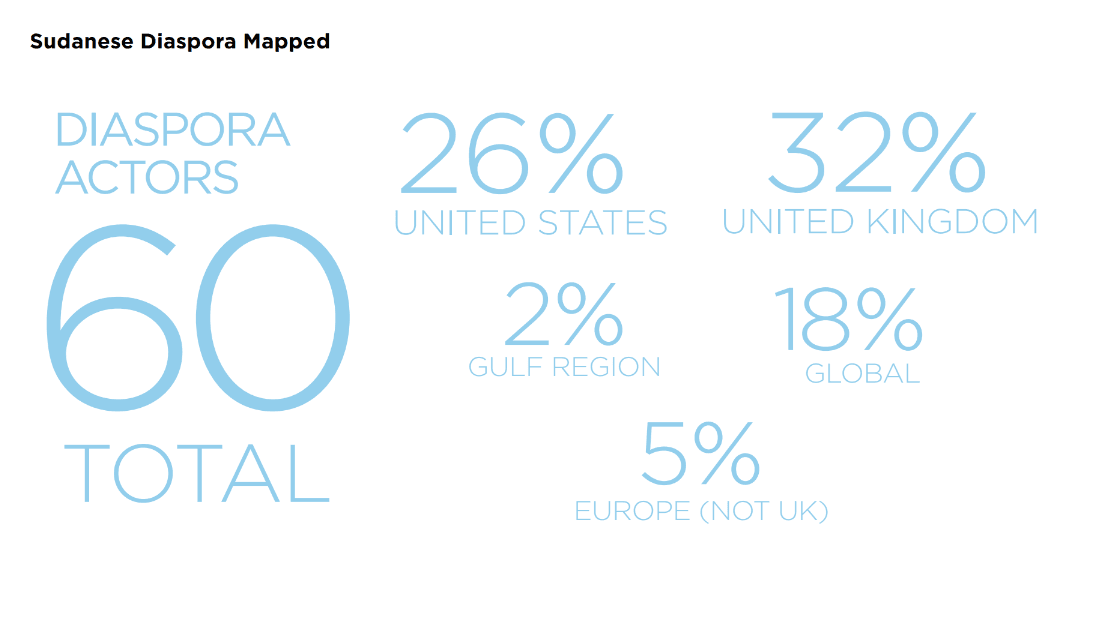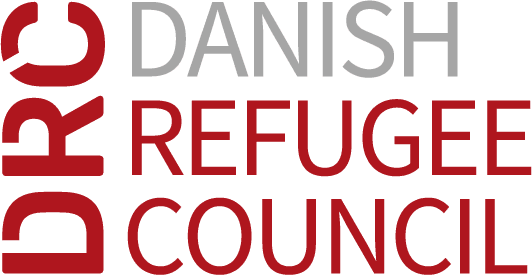

Navigating Sudan’s crisis: Insights into Diaspora-Led Humanitarian Efforts
24 October 2023
DEMAC launches a New Report on "Diaspora Humanitarian Engagement in Sudan".
Mobilizing hope during Sudan’s unfolding conflict
On April 15, 2023, long-standing tensions between the Sudanese Armed Forces (SAF) and the Rapid Support Forces (RSF) erupted into a sudden and widespread conflict, causing a rapidly escalating humanitarian crisis, especially in Khartoum, Darfur, and, to some extent, the Kordofan region. International humanitarian organizations have been slow in adapting to the new operational environment, and the Sudanese diaspora has played a significant role in sharing information, resources, and material aid.
Real-Time Study from April-July 2023: Understanding the Response of the Sudanese Diaspora
This research adopted a qualitative approach, involving mapping active diaspora organizations in the current Sudan crisis and conducting key informant interviews (KIIs). The primary qualitative data was complemented by a comprehensive review of resources related to the Sudanese diaspora response and a social media assessment of targeted diaspora actors. This study included eleven KIIs with diaspora organization representatives, individuals, international humanitarian organization representatives, and local NGO representatives.
It feels like the diaspora is not getting enough support from international organizations. I reached out to a UN agency in Egypt and I was asking for help to review some organizational documents because neither me nor anyone on my team has NGO experience…The response I got was that UN agency was not looking to support on-the-ground organizations.
Sudan's Diaspora Response: Responding to the Crisis with Purpose
The study identified 60 online-active diaspora actors responding since April. The majority (57%) were in the United States or the United Kingdom, while 18% were classified as "global," without a specific headquarters location. Notably, despite a significant Sudanese diaspora in the Gulf Cooperation Council (GCC) states, there are relatively few Gulf diaspora organizations involved in political affairs. In contrast, North American and European diaspora organizations tend to be more registered and engage in higher-profile activities.
The Sudanese diaspora, estimated at over 4.5 million worldwide, swiftly mobilized to share vital conflict information and offer assistance for those seeking to leave Sudan. More recently, their efforts have focused on fundraising for direct humanitarian aid, in coordination with local NGOs, advocating politically in their host countries, and supporting over 850,000 Sudanese refugees in neighboring countries.

Sudanese Diaspora Mapped
The Power of Communication, Community Engagement, and Accountability
The use of social media and informal communication channels has been a hallmark of the diaspora response. Initially, diaspora efforts primarily involved connecting those on the ground with resources, facilitated through social media and the use of specific hashtags to share needs and amplify calls for support.
For example, if there was a household that needed a particular medicine or other item, it would be posted on Twitter with the hashtag “immediate need”, and those outside Sudan could search Twitter using that hashtag to identify needs and amplify calls for support.
We can’t just say that we’ll do development later – these people need employment and education now.
Strengths and Challenges of Sudanese Diaspora Response
Strengths:
Community Connections: Many diaspora actors maintain strong ties with their home communities, enabling better understanding of on-ground needs and forging partnerships for aid delivery.
Logistical Expertise: Diaspora networks exhibit a deep understanding of operational challenges faced by international organizations, such as cash transfers and supply logistics. They employ alternative methods to overcome these obstacles efficiently.
Robust Volunteer Networks: Active community mobilization within Sudan allows diaspora networks to tap into extensive volunteer resources for tasks like transportation, material aid distribution, and cash transfers. This agility contrasts with the challenges international organizations face in mobilizing staff due to safety and bureaucratic concerns.
Challenges:
Funding Hurdles: Diaspora organizations often grapple with capacity and legal prerequisites for receiving funding. Limited funding sources and the complexities of fund management sometimes compel diaspora groups to cover a significant portion of operational expenses on their own.
Overwhelming Workload and Emotional Strain: Many diaspora actors experience substantial workloads and emotional strain due to the Sudan crisis. This includes dealing with both primary and secondary trauma stemming from witnessing the war's devastating consequences and potential personal repercussions. They also face the challenge of balancing their employment in their host country while coordinating diaspora response efforts.
Political Divisions: The political nature of the Sudan conflict can lead to divisions within the diaspora response. Some diaspora actors may struggle to maintain strict political neutrality, having origins in political upheaval. This can affect the distribution of aid, with some maintaining ties to the Sudanese government and others avoiding certain groups like the RSF.
Case-Study Ensaniya: Empowering Collaboration with Innovative Task Forces
Ensaniya is led by members of the Sudanese American Diaspora with support from other global leaders with relevant and extensive expertise in humanitarian action and transitional and development programming. Ensaniya's Sudan Crisis Hub was established after the 2023 Sudan conflict outbreak. It aims to foster collaboration among diaspora groups, international actors, government agencies, and the private sector. Six thematic task forces, including health, finance, insurance, employment, youth engagement, and private sector engagement, work together to address key challenges. For instance, the finance task force is partnering with the United Capital Bank (UCB) to create a bank-to-bank settlement system for easier fund transfers into Sudan, akin to Zelle. https://sudancrisis.org/
𝘛𝘩𝘪𝘴 𝘙𝘦𝘱𝘰𝘳𝘵 𝘩𝘢𝘴 𝘣𝘦𝘦𝘯 𝘱𝘢𝘳𝘵 𝘰𝘧 𝘰𝘶𝘳 𝘢𝘤𝘵𝘪𝘷𝘪𝘵𝘪𝘦𝘴 𝘸𝘪𝘵𝘩 𝘵𝘩𝘦 𝘈𝘙𝘐𝘚𝘌 𝘊𝘰𝘯𝘴𝘰𝘳𝘵𝘪𝘶𝘮. 𝘛𝘰𝘨𝘦𝘵𝘩𝘦𝘳 𝘸𝘪𝘵𝘩 𝘊𝘋𝘈𝘊 𝘕𝘦𝘵𝘸𝘰𝘳𝘬 𝘢𝘯𝘥 𝘐𝘯𝘵𝘦𝘳𝘯𝘦𝘸𝘴, 𝘸𝘦 𝘧𝘰𝘳𝘮𝘦𝘥 𝘵𝘩𝘦 𝘈𝘤𝘤𝘦𝘴𝘴𝘪𝘣𝘭𝘦 𝘢𝘯𝘥 𝘙𝘦𝘴𝘱𝘰𝘯𝘴𝘪𝘷𝘦 𝘐𝘯𝘧𝘰𝘳𝘮𝘢𝘵𝘪𝘰𝘯 𝘚𝘦𝘳𝘷𝘪𝘤𝘦𝘴 𝘢𝘯𝘥 𝘌𝘯𝘨𝘢𝘨𝘦𝘮𝘦𝘯𝘵 𝘧𝘰𝘳 𝘚𝘶𝘥𝘢𝘯 (𝘈𝘙𝘐𝘚𝘌) 𝘤𝘰𝘯𝘴𝘰𝘳𝘵𝘪𝘶𝘮 𝘵𝘰 𝘱𝘳𝘰𝘷𝘪𝘥𝘦 𝘳𝘦𝘭𝘪𝘢𝘣𝘭𝘦 𝘢𝘯𝘥 𝘤𝘰𝘰𝘳𝘥𝘪𝘯𝘢𝘵𝘦𝘥 𝘤𝘰𝘮𝘮𝘶𝘯𝘪𝘤𝘢𝘵𝘪𝘰𝘯 𝘴𝘦𝘳𝘷𝘪𝘤𝘦𝘴 𝘵𝘰 𝘱𝘦𝘰𝘱𝘭𝘦 𝘢𝘧𝘧𝘦𝘤𝘵𝘦𝘥 𝘣𝘺 𝘵𝘩𝘦 𝘤𝘰𝘯𝘧𝘭𝘪𝘤𝘵 𝘪𝘯 𝘚𝘶𝘥𝘢𝘯.
𝘛𝘩𝘦 𝘈𝘙𝘐𝘚𝘌 𝘤𝘰𝘯𝘴𝘰𝘳𝘵𝘪𝘶𝘮 𝘢𝘯𝘥 𝘪𝘵𝘴 𝘢𝘤𝘵𝘪𝘷𝘪𝘵𝘪𝘦𝘴 𝘢𝘳𝘦 𝘧𝘶𝘯𝘥𝘦𝘥 𝘣𝘺 𝘛𝘩𝘦 𝘏2𝘏 𝘕𝘦𝘵𝘸𝘰𝘳𝘬. 𝘙𝘦𝘢𝘥 𝘮𝘰𝘳𝘦 𝘢𝘣𝘰𝘶𝘵 𝘫𝘰𝘪𝘯𝘵 𝘢𝘤𝘵𝘪𝘷𝘪𝘵𝘪𝘦𝘴 𝘩𝘦𝘳𝘦
Photo Credit: Mughari Al-Sharif/Channel4 News
Download the Full-Report, Executive Summary and Snapshot
That could also interest you

Spotlight on the Sudanese Diaspora
Sudanese Diaspora response to the ongoing conflict in their home country.

DEMAC receives funding from H2H Network to strengthen Sudanese diaspora response
Through the ARISE consortium with H2H members Internews and CDAC, DEMAC will focus on enhancing communication and engagement with conflict-affected communities.

Women-led Diaspora Organizations; key actors for sustainable humanitarian assistance
Why it is important to have women who lead change!













